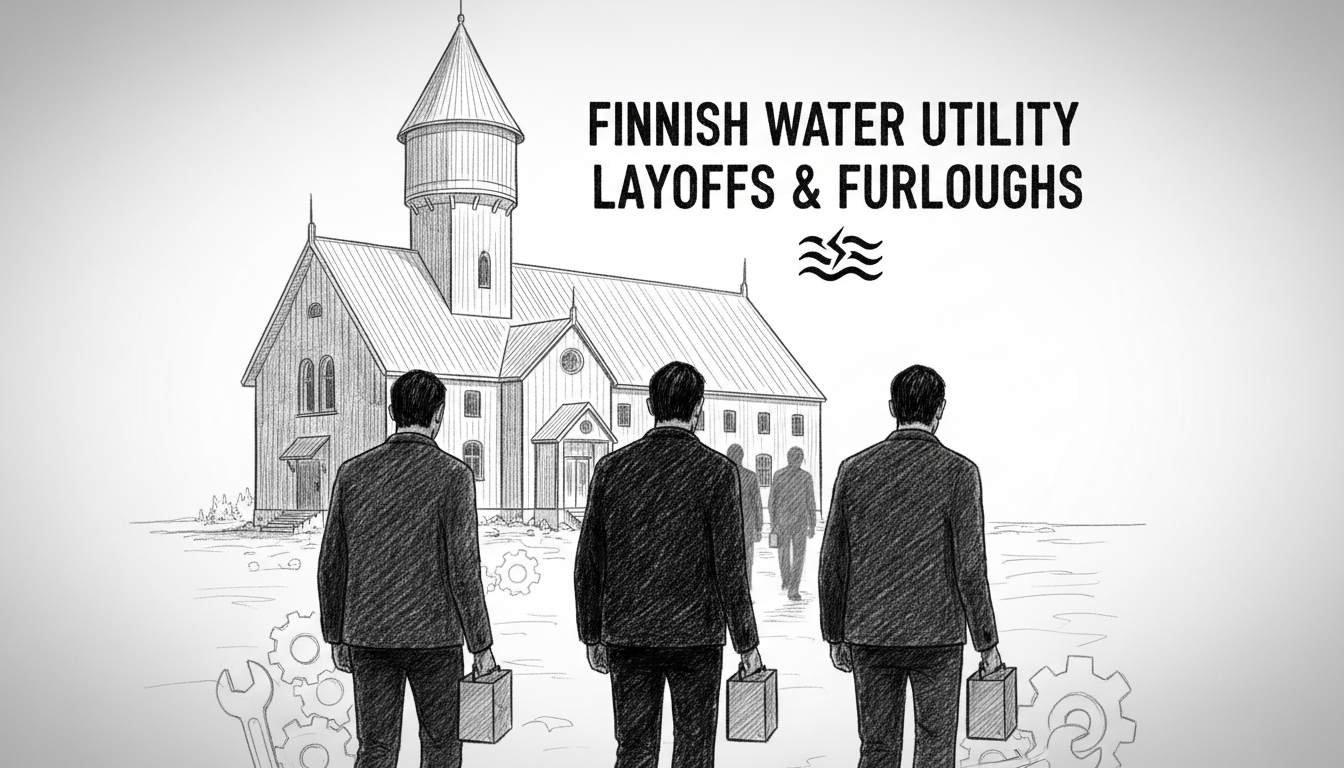A major Finnish water utility has concluded restructuring negotiations with significant workforce impacts. Kymen Vesi will dismiss three employees and implement temporary furloughs for remaining staff. The company's managing director confirmed the measures will affect their networks and construction division.
The utility employs six professionals and sixteen workers in this department. Management now faces the challenge of redistributing workloads among remaining personnel. The restructuring process aimed to achieve substantial annual savings between 150,000 and 200,000 euros.
Company leadership described the negotiation process as difficult but necessary. They expressed relief at reaching a compromise solution. The combination of layoffs and temporary furloughs should meet minimum savings targets.
This Finnish water company began operations in January 2007 through a merger of three municipal waterworks. The utility remains entirely municipally owned with Kotka holding 79% ownership, Kouvola 18%, and Pyhtää 3%. This public ownership structure makes the workforce reductions particularly notable within Finland's typically stable municipal sector.
Finnish labor laws require extensive negotiation processes before any dismissals. The three-week furlough period represents a temporary measure that could precede further adjustments. Such workforce reductions are uncommon in Finland's highly unionized and protected public sector jobs.
The timing raises questions about municipal budget pressures across Finland. Many local governments face increasing infrastructure costs while maintaining essential services. Water utilities typically operate as natural monopolies with predictable revenue streams, making these cuts somewhat unexpected.
International readers should understand that Finnish labor protections are among Europe's strongest. The mandatory negotiation period lasted several weeks before reaching this conclusion. The company likely exhausted other cost-saving options before resorting to workforce reductions.
What comes next for the affected workers? Finnish unemployment benefits provide substantial support during transitions. The specialized nature of water utility work might create challenges for finding equivalent positions locally. The municipal owners will likely face political scrutiny over these decisions affecting public services.
The broader implication suggests even essential utilities face financial pressures in Finland's current economic climate. Other municipal enterprises might follow similar paths if budget constraints continue tightening. These developments warrant monitoring across Nordic public sectors.

